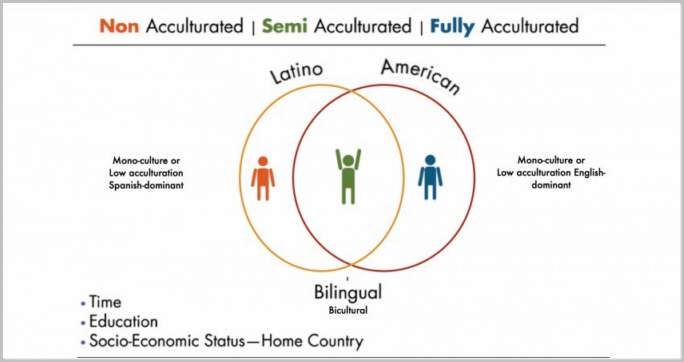Culture changes over time, all the time. This can be because the time, and with it the environment, changes (e.g. new inventions) but another reason can be acculturation.

What is acculturation? In simple terms, it is the process of one cultural group adopting the beliefs and behaviours of another group. Typically it refers to a minority group adapting to the culture in which they are living, i.e. taking on the lifestyle of the majority group. However, it is also possible for the process to be the other way round.
There are many examples of acculturation and this can be noticed in every aspect of life. Germany, for example, has a high Turkish population and German is entering the Turkish language where the relevant word does not exist in the original language. It can also show itself in changing values (e.g. a decrease of family values in Indian communities in the UK) or a complete loss of cultural and ethnic identification with ethnic minorities seeing themselves as part of the majority group rather than a minority.
Acculturation can be measured over time by surveying beliefs, language preferences and attitudes within various generations. It is often perceived that the younger generations, especially if they lived in the foreign country since birth, have gone through a process of acculturation and have strongly adapted to the local culture and try hard ‘to fit in’ or even ‘to blend in’.
An example of reverse acculturation is where the local majority group takes on certain parts of the culture of minority groups, such as the various Indian festivals widely celebrated in the UK or Brazil’s Carnival which is celebrated in many countries.
Acculturation doesn’t mean that both cultures completely merge together with one of them basically becoming extinct in the local environment. Instead it usually creates a new modern and multi-faceted culture with both cultures living alongside each other and creating a multi-cultural environment. This happens in nuances, for example, the majority culture might only take on few elements (or none) of the minority culture, with the latter adjusting and changing more drastically in order to be accepted.
It is often stated that acculturation is a forced process, as when the minority has to adjust to the majority in order to be accepted. This is often the case, as when Aborigines had to adjust to the modern society invading their country in order to survive, but in today’s more open-minded societies it is often a part-voluntary and part-automatic process accomplished through living side by side. But there is no question that acculturation is the learning of a second culture and subsequently mixing both cultures – in varying levels – together.
Acculturation is therefore a change process of cultural beliefs creating a new culture influenced by other cultures.

